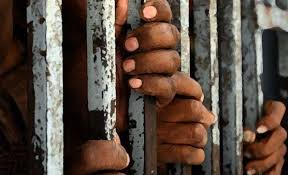
Two Tamil men accused of aiding a 2008 a bombing attempt on former Sri Lankan President Maithripala Sirisena—then the country’s Agriculture Minister—have spent nearly 16 years in remand custody, with their case finally heard last week.
Selvarajah Kirubakaran, also known as “Morris,” and Thambiayah Prakash, alias “Danush,” were arrested shortly after the 9 October 2008 attack in Boralesgamuwa, which killed four of Sirisena’s security personnel. The attack was reportedly carried out by a suicide bomber, which police claim to have identified as Sammugarasa Gajavalini. The bomb went off near Sirisena’s convoy but not at the lead vehicle.
The trial for the two men only began this week at the Colombo High Court, following the belated filing of indictments on 18 December 2023. The pair face 17 charges, including aiding and abetting the suicide bomber with the alleged intent of assassinating Sirisena.
During Wednesday’s court hearing, defence lawyers submitted a request for bail on behalf of the accused, who have remained in remand since their arrest. State Counsel Dhammika Udawatte objected to the application, arguing that releasing the suspects at this stage would compromise the proceedings. The court, presided over by Judge R.S.S. Sapuvida, upheld the prosecution’s objection and denied bail.
Appearing as a witness, Sirisena recounted the day of the attack. He described seeing a woman walking toward his vehicle while appearing to speak on a mobile phone. His driver, suspecting danger, accelerated and narrowly avoided the blast, which struck the vehicle behind. Sirisena said he suffered severe emotional stress in the aftermath but also noted that no police officer had ever formally recorded his statement.
Judicial proceedings in the case did not commence until more than 15 years after the arrest of the suspects, an egregious delay that highlights the systemic failures of Sri Lanka’s legal system, especially when it comes to Tamil defendants.
Human rights organisations have repeatedly criticised the use of Sri Lanka’s Prevention of Terrorism Act (PTA), which permits lengthy detentions without charge and has disproportionately affected Tamil individuals. In some instances, detainees have remained in prison for years without even preliminary hearings.
Kirubakaran and Prakash’s lengthy remand comes against a backdrop of broader concerns about the politicisation of terrorism-related prosecutions and the use of the legal system to punish individuals accused of LTTE affiliation, often without robust evidence or timely due process.
